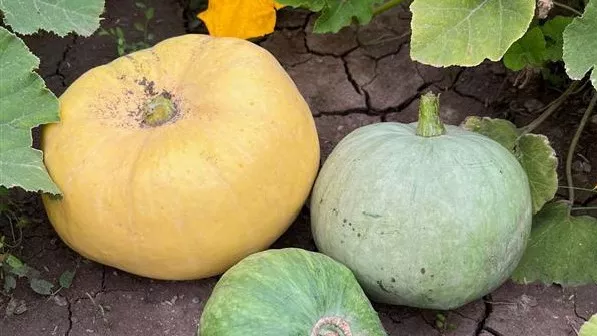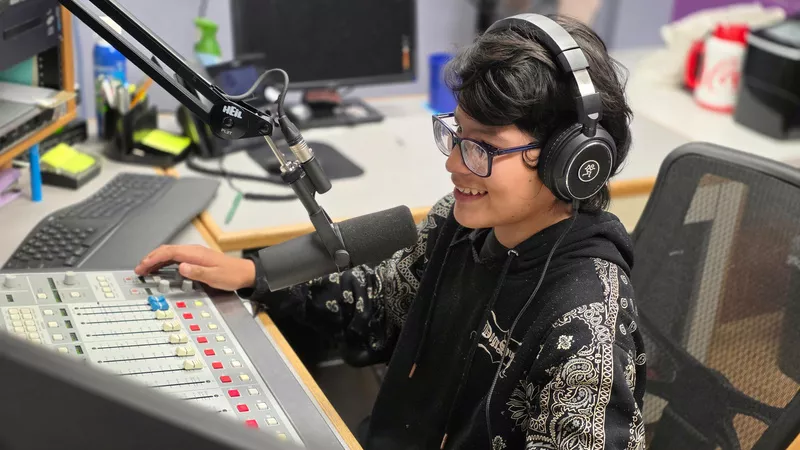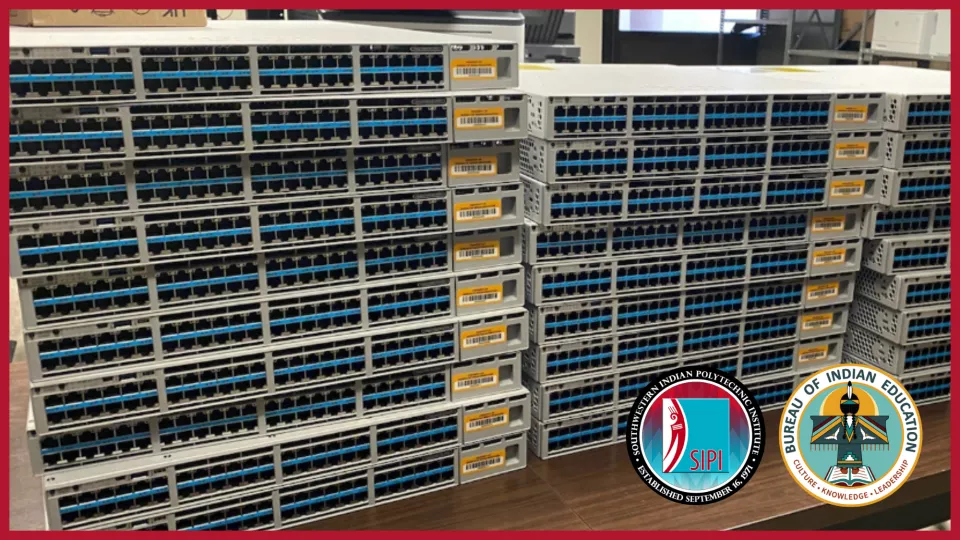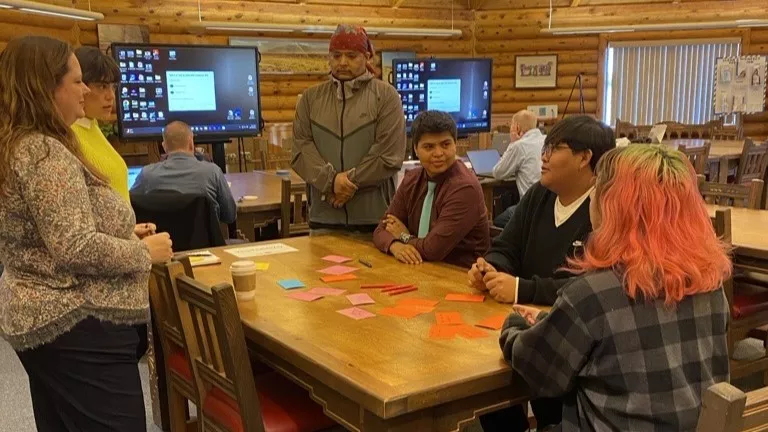
The Bureau of Indian Education’s Indigenous Food Hubs initiative combats food insecurity through education and reconnection to ancestral agricultural practices and diet.
Lt. Cmdr. Casey Cavanaugh is the BIE’s national nutrition consultant. She helps schools build nutrition programs, develops nutrition and training standards, and assists staff in incorporating community-based agriculture and Indigenous knowledge in the lunchroom and curriculum.
“Returning to these foods and reintroducing them in school is important,” Cavanaugh said. “The students have never seen or eaten some of these foods before – things like bison or elk, which are healthier. We’re making the larger communities aware by starting at the schools.”
According to the Centers for Disease Control and Prevention, obesity and type two diabetes are more prevalent among American Indian and Alaska Native children than the general population. Traditional Indigenous foods like elk and bison are leaner and higher in protein compared to beef, the most common red meat in the United States. They contain less total fat, fewer calories, and lower levels of saturated fat. Introducing students to these Indigenous-focused meals can help reduce their risk for heart disease, diabetes and hypertension.
“Introducing these foods can potentially affect their long-term health if they like the taste and continue asking for those foods at home,” Cavanaugh said.
The Indigenous Food Hubs initiative also strengthens food security by teaching students how to plant and care for a garden that yields nutritious vegetables and contributes to a balanced diet. Cavanaugh traveled to Wingate High School in Ft. Wingate, New Mexico, to support the building and planting of their garden. She returned months later and tasted the results of their hard work with the students as they ate a stew made from Navajo squash and corn grown in their garden for lunch.
“It helps to build resilience against hunger and poor nutrition because they're learning ownership of their nutrition and can grow things there locally in their backyard – literally on campus – and utilize those products to enhance their menu,” Cavanaugh said.
The Indigenous Food Hubs are important in the BIE’s mission to provide students with a high-quality, culturally relevant education. In the classroom, students learn to make recipes featuring Indigenous ingredients, such as Navajo cake and bison burgers. Cavanaugh proposes a more profound connection to the new dishes.
“The BIE’s mission is to focus on the student holistically, including getting these Indigenous foods back into their menus and diets,” she said. “That's reconnecting them with their past, and it's like soul food. It's like feeding the spirit.”
Visit the Indigenous Food Hubs page for more information and updates.
Contact
Office of Communications
Bureau of Indian Education Central Office
U.S. Department of the Interior
1849 C Street NW, MIB-3610
Washington, DC 20240
Telephone: 202-941-0789
Email: biecommunications@bie.edu





